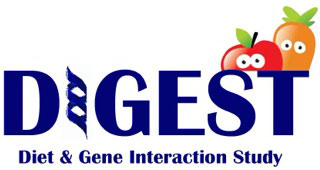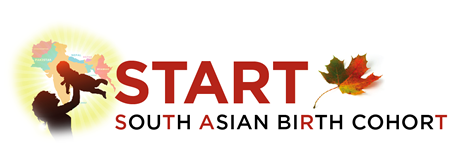Ongoing Studies
CVCD: PI — Dr. Sonia Anand

Purpose of study
Cancer, heart disease, stroke and brain health all impact the quality of life of people living in Canada, and also increase the cost of health care. This study is being conducted to better understand the early causes and risk factors of these conditions and to learn how they progress to the disease states. We are also interested in how our living and working environments influence aspects of our lifestyle such as physical activity, food intake, and stress. Finally, we are interested in exploring the incidence of these diseases among Canada's diverse ethnic populations, including Aboriginal people. There will be no genetic testing in this study. By better understanding the causes of poor health, we will be able to identify the risk factors of heart disease and brain dysfunction earlier. In turn, this will allow us to optimize health services access and treatment for at risk individuals.
Main objectives of study
- To understand the role of environment (such as the community in which you live and work) and contextual factors (such as societal structure, activity, nutrition, smoking, and access to health services) on heart disease, stroke and other brain disorders, memory and brain function.
- To understand the culture and immigration related factors that affect health status in people belonging to ethnic groups such as South Asians, Chinese, African origin, and reserve-based Aboriginal people from across Canada.
- To look for early possible signs of change in the function of brain, blood vessels and the heart. Magnetic resonance imaging (MRI) will be used to understand the early signs of heart disease, stroke and related brain disorders, and the decline of memory and brain function.
- To understand how changes in brain, blood vessels, and heart function relate to the social, environmental and contextual factors explained above.
The study planned to recruit 9,700 participants from locations across Canada, including 3,000 participants of South Asian, Chinese, and African ethnic origin. The study also aims to include 2000 individuals from Aboriginal communities.
ABC: PI — Dr. Sonia Anand

In the Aboriginal Birth Cohort (ABC) study, our primary goal is to determine the causes of fat gain among Aboriginal newborns and the growing offspring during the first three years of life. We will compare the percent body fat of the Aboriginal babies to that of Caucasian babies and South Asian babies. Also, we will engage pregnant women, new mothers, their healthcare providers, and grandmothers of the Six Nations community to learn about the knowledge, beliefs and attitudes towards the health of pregnant mothers and the care of newborns.
DIGEST: PI — Dr. Sonia Anand
Cardiovascular disease (CVD) is the leading cause of death globally. The majority of CVD is explained by traditional risk factors including cigarette smoking, abnormal lipids, high blood pressure, obesity, diabetes, and health behaviours including diet, physical activity, and stress. Genes (the blueprint of life) contribute to the development of these risk factors, and also may directly contribute to CVD. Recently we found that among people with a particular genetic variant, called 9p21, the risk of heart disease may be "turned off" if individuals ate a diet high in fruits and vegetables. However the reason for this gene-diet interaction is unknown. In this study, we seek to discover how a healthy, or "anti-inflammatory", diet interacts with the 9p21 gene to alter the risk of CVD.
The purpose of DIGEST is to test the feasibility of a dietary intervention where food is provided for 2 weeks to determine the amount of change in gene expression and biochemical markers of inflammation in response to a prudent diet compared to a typical North American diet.
GENOA: PI — Dr. Zena Samaan

GENOA (Genetics of Opioid Addiction) is a research collaborative between the Ontario Addiction Treatment Center (OATC) and the Population Genomics Program in the Faculty of Health Science at McMaster University. This research collaborative seeks to answer questions pertaining to the impact of genetic variants on response to methadone for patients seeking treatment for opioid addiction. Methadone has significant inter-individual variability, as well as side effects, including mortality, making proper patient treatment tailoring a clinical challenge with serious consequences. The nature of the patient population is complex, often forcing physicians to consider a variety of individual characteristics such as genetics, age, sex, body weight, smoking habits, use of medications, past histories of drug use, and others that may ultimately affect patient responsiveness to Methadone Maintenance Therapy (MMT). GENOA will be investigating different aspects of methadone response, including but not limited to; continued opioid abuse, methadone dose, and methadone metabolism.
Jump START: PI — Dr. Sonia Anand
Is a pilot study to determine the gene expression and epigenetic marks of DNA from placenta
PEAPOD: PI — Dr. Sonia Anand
SAHARA Project: PI — Dr. Sonia Anand
SAHARA: The South Asian Heart Risk Assessment (SAHARA) project aims to screen 1,000 people of South Asian origin from the Greater Toronto area and Hamilton regions in order to determine their risk for heart disease. In addition to the risk factor assessment, all subjects will also be provided with their genetic risk score using the 9p21 genetic variant. We will determine if knowledge of the genetic risk score is associated with changes in behaviour modification over time.
START: PI — Dr. Sonia Anand
The SouTh Asian biRth cohorT (START) aims to recruit 1,000 South Asian mothers and their newborns from the Greater Toronto area. The main objectives of this study are to determine the early life determinants of adiposity in the newborn and growing offspring.


